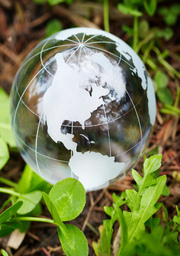Teaching Kids About Sustainable Energy Use
As our planet faces unprecedented environmental challenges, teaching kids about sustainable energy use has become more crucial than ever. Instilling awareness and understanding of sustainable energy from a young age prepares our children for a more responsible role in the future. It also helps inculcate habits that contribute to a healthier planet.
There no time better than the present to explore innovative and engaging ways to educate children about the importance of sustainable energy. However, we can also do it without losing the fun element of learning.
The Basics of Sustainable Energy
Before diving into the practical aspects of sustainable energy use, it’s important to lay the groundwork by explaining what sustainable energy is. In simple terms, sustainable energy refers to sources of energy that meet our present needs without compromising the ability of future generations to meet theirs. Examples include solar, wind, and hydroelectric power. Discussing the impact of traditional energy sources on the planet, alongside the benefits of sustainable alternatives, sets the stage for deeper understanding.
Parental Involvement
Encourage parents to actively participate in their child’s learning journey towards sustainable energy use. Through actions like modeling sustainable habits and discussing the environmental impact of daily decisions, parents can reinforce the lessons being taught. Projects that require family participation, such as creating a home garden or installing rainwater collection systems, provide practical examples of sustainability in action.
Our world is full of choices that can have a significant impact. Explaining the concept of energy deregulation and the power to choose their energy provider empowers children to understand the importance of informed decision-making in energy consumption. It’s also a practical way to teach them about the broader implications of sustainable living and how their choices can contribute to environmental conservation.

Interactive Learning Activities
Children learn best when they’re actively engaged. Organize activities that allow hands-on learning about solar panels, wind turbines, and other sustainable energy technologies. For instance, simple experiments using mini solar panels to power small devices can demonstrate the effectiveness of solar energy. Making learning interactive helps cement the concept of sustainable energy in a child’s mind.
Energy Conservation at Home
Teaching kids about energy conservation in their daily lives is a practical approach to sustainable living. Encourage them to develop habits such as turning off lights when leaving a room, using energy-efficient appliances, and minimizing water wastage. Consider installing a 4kw solar system in your home to show your kids first hand how sustainability technology is present in their daily lives. Create a monthly challenge with rewards for the most energy-efficient behaviors to make conservation a fun and rewarding activity.
Storytelling and Role-Playing
Storytelling and role-playing are powerful tools in child education. So why not create stories or plays where characters face challenges related to energy use and find solutions through sustainable practices? These stories not only entertain but also provide valuable lessons on the importance of conserving energy and using sustainable sources.
Educational Games and Apps
In the digital age, educational games and apps are effective mediums to teach children about any subject, including sustainable energy. There are various apps designed to educate children on energy conservation, renewable energy sources, and the impact of energy use on the environment. Such digital tools make learning about energy both fun and accessible.
Field Trips to Renewable Energy Sites
Nothing beats the firsthand experience of seeing renewable energy in action. Organize field trips to places like solar farms, wind farms, or hydroelectric plants. Such visits can profoundly impact children’s understanding and appreciation for sustainable energy technologies. Preparing them with questions to ask during the visit can enhance their learning experience.
Involve Them in Energy-Saving Projects
Participating in energy-saving projects at home or in their community can be a practical and impactful way of learning. Encourage them to partake in community clean-up projects, tree planting activities, or even a simple project of building a birdhouse with recycled materials. These activities reinforce the message of sustainability and show them the difference they can make. Take advantage of world events, such as Earth Day, that promote how everyone can do their little part to save our planet.
Engaging Through Social Media
Utilize the power of social media platforms to engage kids and adolescents in sustainable energy conversations. Encouraging them to follow pages and accounts dedicated to environmental education and sustainable living practices can significantly broaden their understanding and involvement. Social media challenges that promote sustainable habits, such as reducing energy consumption or waste, can be both educational and viral among young groups, multiplying the impact.
Global Perspectives
Exposing children to global perspectives on sustainable energy use is important to help them understand the worldwide impact of their actions. Discussing international efforts in renewable energy and comparing how different cultures approach energy conservation can open their minds to new ideas and solutions. Virtual interactions with peers from other countries, perhaps through school exchange programs or online forums, could foster a sense of global community and shared responsibility.
Conclusion
Teaching kids about sustainable energy use is not only about informing them of the challenges we face but also empowering them with the knowledge and skills to make a difference. Through interactive learning, storytelling, and practical experiences, children can develop a deep appreciation and understanding of sustainable energy. By cultivating these values from a young age, we are preparing our children to lead a more sustainable and responsible life in harmony with our planet.





